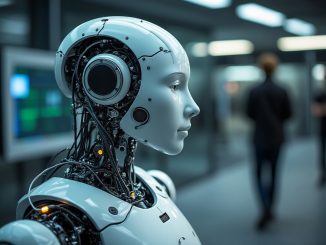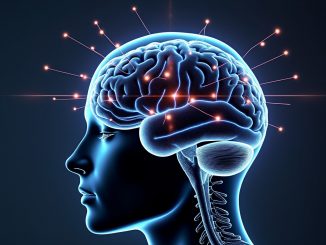- Bill Gates predicts that within a decade, AI will render human expertise unnecessary “for most things,” offering “free intelligence” like top-tier medical advice and tutoring, as shared with Harvard’s Arthur Brooks last month.
- He sees AI driving rapid advances in medicine, climate, and education, though it carries risks like errors and misinformation, while remaining a “fantastic opportunity” for startups – potentially raising billions – and young innovators.
- Gates, who foresaw AI’s rise in 2017 at Columbia University, was stunned by OpenAI’s swift Advanced Placement (AP) Biology exam success in 2023, calling it a landmark since 1980, though debates persist on whether AI will enhance efficiency or destabilize jobs, as Mustafa Suleyman warns in The Coming Wave.

Bill Gates, the Microsoft (MSFT) co-founder and billionaire philanthropist, envisions a future where artificial intelligence renders human expertise obsolete “for most things” within the next decade, a perspective he shared with comedian Jimmy Fallon on NBC’s The Tonight Show in February. He foresees AI delivering “free intelligence” – a term he coined in a discussion with Harvard’s Arthur Brooks last month – making exceptional medical advice and tutoring widely accessible, effectively democratizing skills once confined to rare specialists like “a great doctor” or “a great teacher.” Gates, who has long anticipated AI’s transformative power, reflected on its rapid evolution, noting to CNBC Make It in September 2024 that an AI-centric startup could raise billions today with mere “sketch ideas,” a testament to the technology’s allure and potential.
This AI-driven shift, which Gates deems “profound and even a little bit scary” due to its speed and limitless ceiling, promises breakthroughs in medicine, climate solutions, and education, as he wrote in a 2023 blog post, though he acknowledges persistent flaws like error-prone models and misinformation risks. He remains optimistic, telling Fallon that while AI could solve tasks like manufacturing, logistics, and food production, certain human domains – such as baseball – will likely stay beyond its reach, preserving some roles amid what Microsoft AI CEO Mustafa Suleyman, in his 2023 book The Coming Wave, calls a “hugely destabilizing” labor replacement wave. Gates’ foresight traces back to a 2017 Columbia University event with Warren Buffett, where he pegged AI as the future, citing Google DeepMind’s Go victory as a “profound milestone,” a prediction validated when OpenAI aced an AP Biology exam in months rather than the two or three years he’d expected.
The implications of this AI era spark debate: some experts see it amplifying human efficiency and spurring job creation, while Suleyman warns of fundamental job transformation across industries, with tools only briefly augmenting intelligence before supplanting it. Gates, undeterred, views it as a “fantastic opportunity,” urging young innovators at Microsoft and OpenAI to seize the frontier, as he told CNBC Make It, inspired by their fresh perspectives. His surprise at AI’s pace – evident in OpenAI’s swift exam success, which he dubbed the most significant advance since the 1980 graphical user interface – underscores a trajectory where, over the next decade, AI’s pervasive growth could redefine societal reliance on human skill, balancing immense promise with the challenges of adaptation.
WallStreetPit does not provide investment advice. All rights reserved.
- Bulenox: Get 45% to 91% OFF ... Use Discount Code: UNO
- Risk Our Money Not Yours | Get 50% to 90% OFF ... Use Discount Code: MMBVBKSM
Disclaimer: This page contains affiliate links. If you choose to make a purchase after clicking a link, we may receive a commission at no additional cost to you. Thank you for your support!




Dear Mr Gates,
Whilst its all very nice you joining your Lefist buddies on TV to tout A.I. and what it will bring,
I have another point of view, Based on Google’s Roll out of the GOAT of A.I., ‘Gemini’ when asked what the first President of the United States looks like, well, we all know what happened there.
A.I. is only going to be as good as the Programmers who type in the code,
And we got a Loooooong Way to go before code writers become completely unbiased.
Sorry,
Well,
NO,
I’m Not